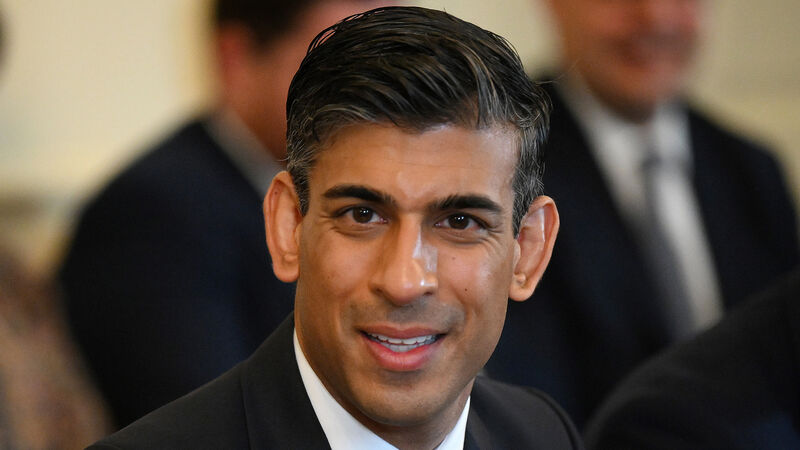UK's Sunak embraces socialism with windfall tax amid rising inflation and cost-of-living crisis

Rishi Sunak, the UK's chancellor of the exchequer: His latest measures to see the economy through the cost-of-living crisis mean the Tory government has imposed the highest tax burden since the 1950s.
Rishi Sunak, the UK's chancellor of the exchequer, wants to be known as a traditional UK Conservative but his record in office looks increasingly closer to his socialist predecessors.
Mr Sunak’s latest package of measures to see the economy through the cost-of-living crisis means the Tory government has imposed the highest tax burden since the 1950s and also brought in the first windfall tax since the early days of Tony Blair’s Labour administration in the 1990s.
The chancellor needs the money to pay for £37bn (€43.4bn) support for consumers struggling to pay their bills after a surge in energy prices and taxes.
That’s on top of the unprecedented interventions to support the economy through the Covid-19 pandemic, which included paying the wages of workers idled during government-imposed lockdowns.
The new binge of taxation and spending caused grumbling in Mr Sunak’s own party, potentially denting his already fading chances of succeeding Boris Johnson as prime minister.
After he delivered his latest extraordinary statement to the UK parliament, Tory MP Richard Drax said the chancellor was “throwing red meat to socialists” and that raising tax on businesses and telling them where to invest was “not the Conservative way".
Another, Edward Leigh, said Conservatives understood there were “enormous difficulties of interfering in the market place”.
Those charges may sting because Mr Sunak’s action on Thursday was so far short of his personal ideology. He’s worked to position himself as the true heir to Margaret Thatcher and Nigel Lawson by preaching a low-tax, fiscally responsible Conservatism.
Some right-leaning research groups were even more vicious, with the Institute of Economic Affairs’s (IEA) Matthew Lesh saying: “The state is not the solution to the cost-of-living crisis.”
“The worst way to make policy is to oppose something half-heartedly in principle, then procrastinate and finally change position as a result of political expediency,” IEA director general Mark Littlewood added.
Mr Sunak’s salvo is also a sign of how the experience of the pandemic has shifted public expectations of how much the government can intervene in the economy.
That may open the floodgates for requests for extra help when the UK faces pain from other sources.
Not everyone is convinced more spending is the answer.
“Income subsidies can be a slippery path,” said Kallum Pickering, an economist at Berenberg.
“It will be hard to reverse, especially if it stokes even higher inflation down the road. The government will be tempted to keep up the support until at least the next election,” he said.
“The consequence of easing the pain now may be worse pain later on,” he added.
Bloomberg










